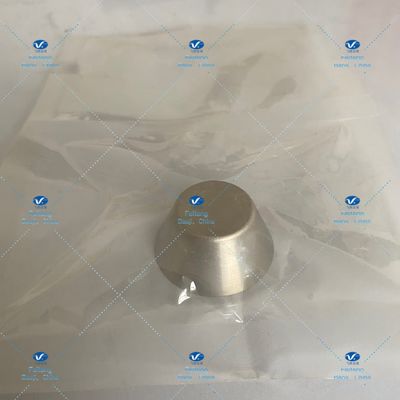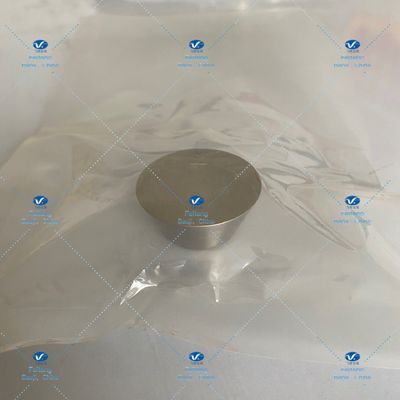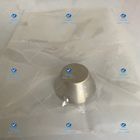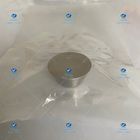GBT19001 Customized High Purity Titanium Targets Corrosion Resistance
| Place of Origin | Baoji, Shaanxi, China |
|---|---|
| Brand Name | Feiteng |
| Certification | GB/T19001-2016 idt ISO9001:2015 GJB9001C-2017 |
| Model Number | Titanium target |
| Minimum Order Quantity | To be negotiated |
| Price | To be negotiated |
| Packaging Details | Vacuum |
| Delivery Time | To be negotiated |
| Payment Terms | T/T |
| Supply Ability | To be negotiated |

Contact me for free samples and coupons.
Whatsapp:0086 18588475571
Wechat: 0086 18588475571
Skype: sales10@aixton.com
If you have any concern, we provide 24-hour online help.
x| Standard | Gr2 | Grade | Titanium |
|---|---|---|---|
| Product Name | Titanium Target | Certifaction | GB/T19001-2016 Idt ISO9001:2015 GJB9001C-2017 |
| Packaging | Vacuum Package In Wooden Case | Port Of Delivery | Xi'an Port, Beijing Port, Shanghai Port, Guangzhou Port, Shenzhen Port |
| Shape | Round | Customized | Customized |
| Highlight | Customized High Purity Titanium Targets,GBT 19001 Titanium Targets,Corrosion Resistance Titanium Sputtering Targets |
||
Titanium target Gr2 ASTM B381-06 a Sputtering Target Sputtering Materials Target Sputtering
| Item Name | Titanium target |
| Grade | Gr2 |
| Material | Titanium |
| Packaging | Vacuum package in wooden case |
| Port of delivery |
Xi'an port, Beijing port, Shanghai port, Guangzhou port, Shenzhen port |
| Shape | Round. |
| Surface | Pickled, Polished |
Titanium has a metallic luster and ductility. Titanium is characterized by its low density, high mechanical strength and ease of processing. The plasticity of titanium depends largely on its purity. The purer the titanium, the more plastic it is. Good corrosion resistance, not affected by the atmosphere and seawater. At room temperature, it will not be corroded by hydrochloric acid below 7%, sulfuric acid below 5%, nitric acid, aqua regia or dilute alkali solution; Only hydrofluoric acid, concentrated hydrochloric acid, concentrated sulfuric acid can act on it. The presence of impurities in titanium greatly affects its mechanical properties, especially the interstitial impurities (oxygen, nitrogen, carbon) can greatly improve the strength of titanium and significantly reduce its plasticity. The good mechanical properties of titanium as a structural material are achieved by strictly controlling the appropriate impurity content and adding alloying elements.
Titanium is a very active metal and is very stable in the medium. Titanium has corrosion resistance in oxidizing, neutral and weakly reducing media. Because titanium has great affinity with oxygen, it has a dense, strong adhesion and large inert oxide film on titanium surface in air or oxygen containing medium, which protects titanium from corrosion. Even mechanical wear, it can quickly heal or regenerate. Titanium is also a metal with strong passivation tendency. In order to improve the corrosion resistance of titanium, surface treatment technologies such as oxidation, electroplating, plasma spraying, ion nitriding, ion implantation and laser treatment were developed to enhance the protective effect of titanium oxide film and obtain the ideal corrosion resistance. In order to meet the needs of metal materials such as sulfuric acid, hydrochloric acid, methylamine solution, high temperature wet chlorine and high temperature chloride production, a series of corrosion resistant titanium alloys such as Ti Mo, Ti palladium, Ti Mo Ni have been developed. Titanium -32 molybdenum alloy is used in titanium castings. Titanium -0.3 molybdenum -0.8 nickel alloy has been applied in the environment where cracks and pitting often occur, or titanium -0.2 palladium alloy has been applied in the local area of titanium equipment. The new titanium alloy can be used for a long time at 600 or higher temperatures. Compared with steel and copper, titanium has the longest vibration decay time after mechanical vibration and electric vibration. Titanium can be used as vibrating element for tuning fork, medical ultrasonic crusher and advanced audio loudspeaker. Titanium is a non-magnetic metal which is not magnetized in a large magnetic field. It is nontoxic and has good compatibility with human tissues and blood, so it has been widely used in medicine. This characteristic of titanium shows its high yield strength ratio (tensile strength / yield strength) and poor plastic deformation during forming. Because of the high yield limit and elastic modulus of titanium, the resilience of titanium is relatively high. Although the thermal conductivity of titanium is lower than that of carbon steel and copper, because of its excellent corrosion resistance, the thickness of titanium can be greatly reduced, and the heat transfer between the surface and the steam is dropwise condensation, thereby reducing the heat group. The thermal resistance of titanium can also be reduced without scaling on the surface, thus significantly improving the heat transfer performance of titanium.
Benefits:
1. Low Density and High Specification Strength
2. Excellent Corrosion Resistance
3. Good Resistance to Effect of Heat
4. Excellent Bearing to Cryogenics Property
5. Nonmagnetic and Non-toxic
6. Good Thermal Properties
7. Low Modulus of Elasticity







